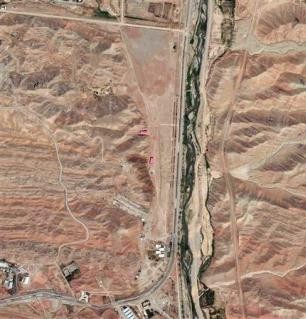Explosion at key Iran military site: Sabotage?
A spectacular explosion took place on Sunday night outside Tehran in the Parchin military base, where Iran produces crucial elements of its missiles and other munitions, raising questions about whether the blast was an accident or sabotage. The explosion and resulting fire could be seen from apartments in Tehran and appeared to have destroyed several buildings. But it was distant from a part of the base to which the International Atomic Energy Agency has been seeking access for years, to investigate reports of experiments on high explosives that could have been used in nuclear weapons. The explosion, according to satellite photographs from Airbus that were analyzed by the Institute for Science and International Security, took place in a densely built region toward the southern end of the base, in an area that appeared from past photographs to be littered with bunkers. The Institute said it had obtained commercially available satellite imagery on which six buildings at Parchin appeared damaged or destroyed.
Several signatures that coincide with those expected from an explosion site are visible here. Two buildings that were present in August 2014 are no longer there, while a third building appears to be severely damaged. In total at least six buildings appear damaged or destroyed.
The Institute for Science and International Security website
Iranian news media reports, while sketchy, indicated that two people were missing. The explosion, whether accidental or not, comes at a key moment in Iran’s confrontations with the West. It has resisted a series of efforts by the International Atomic Energy Agency to get answers on about a dozen separate issues. A trip to Tehran earlier this week, just after the explosion, by I.A.E.A. inspectors failed to make progress on that list, though the Iranians said the discussions were “very constructive.” Iran missed a deadline of Aug. 25 to provide a series of answers to the agency. while Secretary of State John Kerry is scheduled to talk with his Iranian counterpart, Mr. Zarif, in Vienna on Wednesday, there is increasing concern among American negotiators that time is running short to negotiate what would be an enormously complex agreement.

Middle East iran